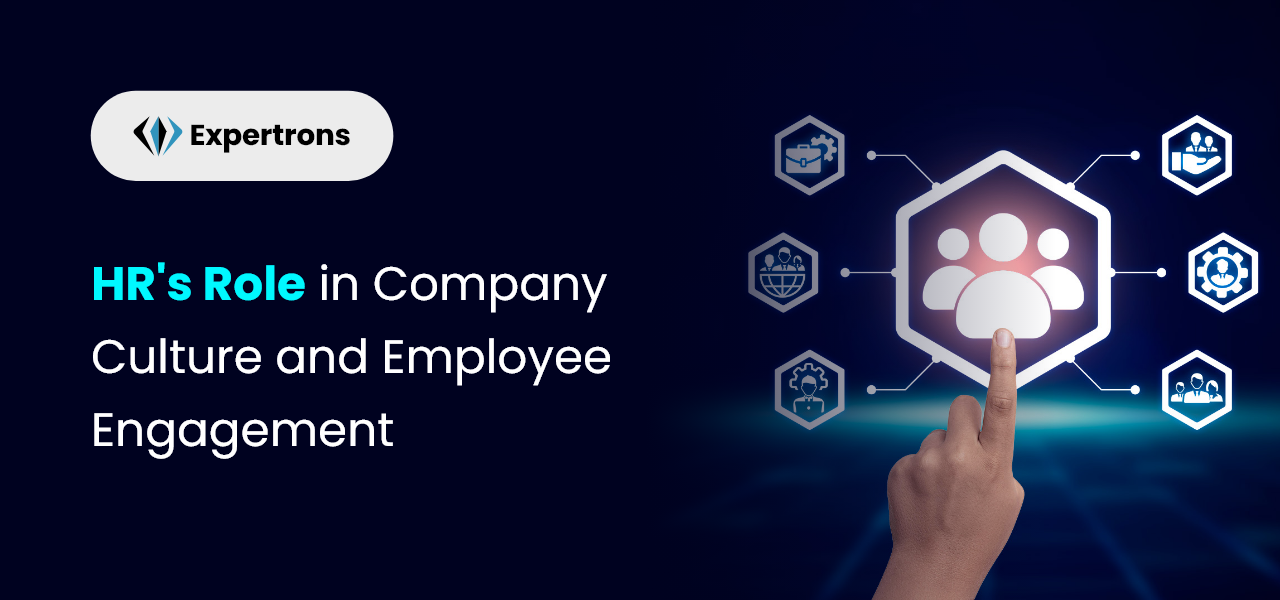Introduction to the Role of HR
The sphere of human resources goes beyond looking after the recruitment procedure or handling paperwork. Encompassing a pool of responsibilities, but what is the role of HR exactly?
HR is one of the most integral departments in charge of various functions, including helping maintain a positive work environment for the employees to ensure that the employees contribute to the mutual goals of the company.
Traditionally the core responsibility of the HR framework is to uplift the organization’s functionality and further bring out the true potential of its employees. In today’s diverse business environment, HR Professionals further extend toward a total commitment to fostering organizational culture by boosting the morale of team members through constant motivation and promotions.
While businesses must retain their employees and constantly keep up with their expectations to achieve continued success, HR Professionals steadily contribute to the growth and well-being of the employees. HR management skills come into play, acting as the conduit between the administration and the employees.
Hence, here in this blog, we will explore deeper into the significance of the most intrinsic body of an organization, HR.
What is the Role of HR in Corporate Culture?
From sprouting businesses to fully operational companies, it is evident how HR navigates through employee queries, making them aware of the company and their rights and helping create a better coworking space for the employees. To have employees engaged at work marks for the company’s collective success.
Moreover, HR centers a pivotal role in shaping the company’s overall outlook by reviewing policies, deploying specific tools to monitor workplace culture, and taking necessary actions to enhance the same. HR is a forum for the employees that provides a fair platform for them to express their suggestions along with assisting in getting them familiarized with the company pattern.
Also Read: Future of Financial Education: How Online Courses are Transforming Education
How can HR Professionals Create an Engaging Organisational Culture?
HR is the primary facilitator of employee engagement, monitored through continuous surveys and evaluation. A healthy working environment not only brings about fruitful changes in the company but also calls for promoting employee well-being.
It is the emotional connection that the employees feel towards the company and their willingness to contribute to the company’s values. HR work can sometimes be tedious, from allocating the right professional to the right jobs to retaining top-performing employees.
However, the role of hr is to drive employee engagement, the fundamental factor is amplifying the organizational culture. Below we will be looking into a few parameters that reinforce employee commitment toward the organization:
Recognizing Employee Contribution:
A key driver to increased employee potential is through recognizing the efforts put in by an employee. It makes them feel appreciated and valued, boosting them to outperform themselves to produce better results.
Working on establishing seamless communication:
Another fundamental parameter to keep employees faithful towards the company is maintaining absolute transparency in communication. Keep employees aware of the company updates to avoid communication barriers and safeguard trust and faithfulness.
Assuring career growth and opportunities:
One of the most vital points where a company can win over its employees is ensuring them a journey full of opportunities to back their professional growth. Assuring employees a pathway to develop valuable skill sets and grow in their domain can guarantee lifelong dedication towards the company and its values.
Motivate and Inspire Employees to perform better:
Through constant motivation and appreciation, it is possible to make employees feel valued. Often undermining an employee’s hard work can make them feel unsatisfied with their job. HR Professionals must avoid such circumstances and make every employee feel included by highlighting how their contribution has impacted the company.
Feedback tools to ensure optimal company culture:
thorough surveys must be run on a timely basis to assess how well the workforce has coped with their work. The company can accomplish greater heights in the long run through its enthusiasm and dedication. This creates a sync between the employees and the higher management by duly addressing the employees’ concerns.
Award Programs and Activities:
Award programs can act as a necessary token to honour the contribution made by the employees while pushing all the other employees to perform better. Eventful activities can also escalate team spirit and propel more organizational engagement.
How can HR Certification Courses cater to your required HR Skill Set?
Developing skills that align well with your desired career can be a challenging hunt, and so is recognizing what skills can improve your career. This is where online HR Certificate Courses bridge the gap between HR Aspirants and their need to acquire the necessary skills to excel in their domain.
Examine Credible HR Certifications that open doors to expanding your knowledge, offering a heightened potential to stand out amongst all other competing candidates. The Advanced Certificate Program in Strategic Human Resources & Analytics by Expertrons provides an all-around development with an immersive learning experience that can substantially leverage your career to the next level.
How Does Employee Engagement Impact the Success of the Company?
According to the Forbes Advisor report on HR trends, companies with highly engaged employees are 21% more profitable. HR forms an imperative backbone for any organization by looking into employee insights and opinions and rigorously monitoring the creation of a better working atmosphere for increased employee productivity.
To define what is the role of HR in employee engagement is diverse, ranging from conducting training programs to facilitating quick resolutions to conflicts within the organization. A disgruntled workforce implies the HR’s inability to keep the employees engaged in meaningful conversations to reach a mutual conclusion.
Therefore, HR must be the driving force to build a secure working experience for the employees and steer them towards open discussion between team members and management.
Also Read: Is Upskilling the Key to a Better Future in Banking & Finance Industry?
Conclusion
HR has an unending impact on how employees perceive the company culture. They undertake necessary measures to support free-flowing engagement within the company boundaries.
To build a career in HR, one must be duly informed about the challenges and the broad spectrum of opportunities that come along with developing the necessary skills for human resource management. This is now possible by upskilling yourself through rigorous learning and continuous career assistance from Expertrons.
Frequently Asked Questions
HR or Human Resources are responsible for looking after the organisational growth by recruiting suitable candidates that collectively meet the organisation’s business goals. They further supervise employee life cycles, formulate employee policies, and work on maximising the company’s productivity by optimising corporate culture.
Yes, Expertrons’ Advanced Certification Program in Strategic Human Resources and Analytics applies a dynamic approach towards career advancement, offering placement assistance to HR Aspirants.
HR Professionals conduct rigorous communication activities to promote corporate culture and harmony by involving employees, nurturing a positive environment and boosting productivity and collaboration.
Prioritising work-life balance will be among the prime requisites of building employee engagement to address employee needs. Furthermore, with the advancement of technology with each passing day, organisations have benefitted by facilitating more convenient means of work arrangement and various channels to monitor employee progress.
An industry-recognised certification can provide you with all the necessary skill sets to outshine your capabilities in the competitive job market. It accentuates your top skills and sets you apart from other candidates giving you more leverage on any stance.











